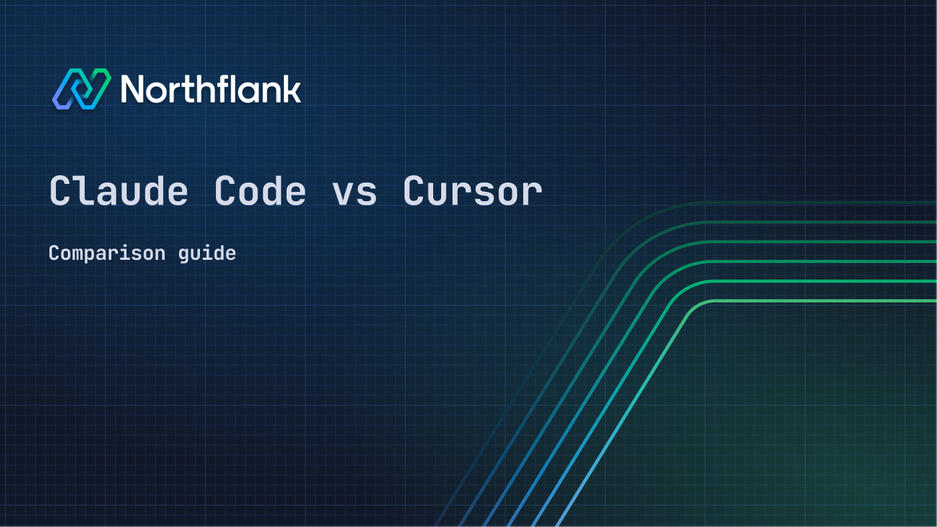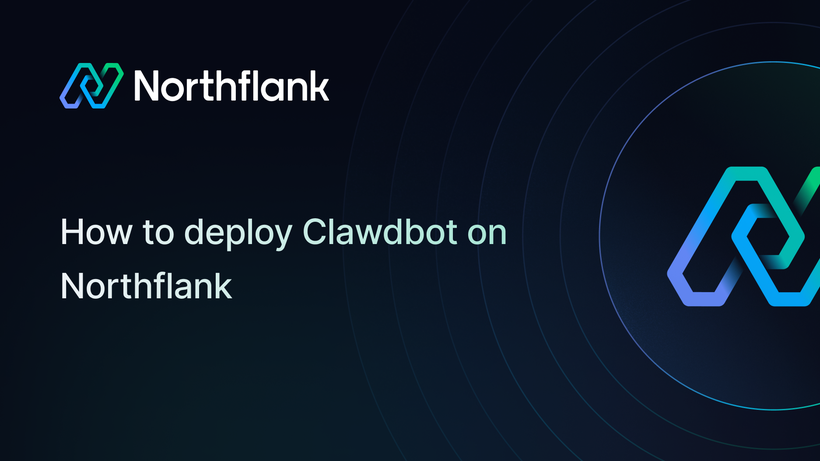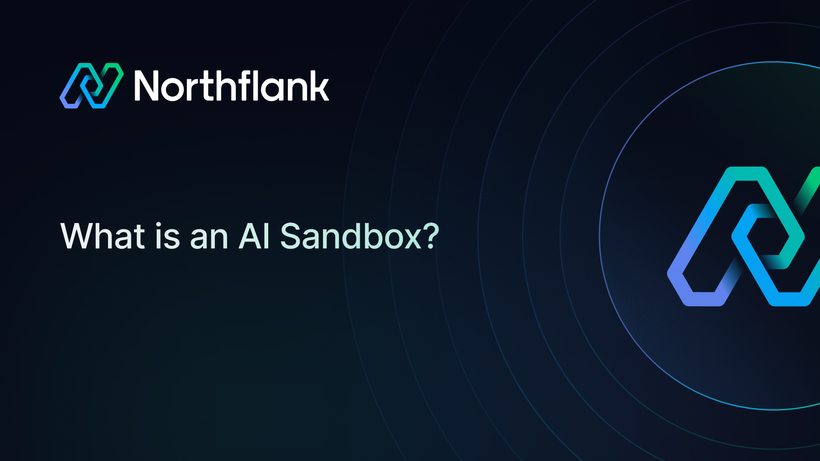

Claude Code vs Cursor: Complete comparison guide in 2026
Claude Code excels at autonomous coding tasks and complex file operations, while Cursor offers superior IDE integration and real-time code assistance. Both face the same critical limitation: rate limits and API dependencies that throttle productivity at crucial moments.
The solution is self-hosted open-source models that eliminate rate limits, reduce costs by 60-80%, and give you complete control over your AI coding workflow. You can self-host open-source models with Northflank.
Claude Code is Anthropic's command-line AI coding assistant that operates as an autonomous agent.
Unlike traditional code completion tools, Claude Code can:
- Read entire codebases and understand project structure
- Edit multiple files simultaneously across your project
- Execute tests and debug issues automatically
- Commit changes directly to GitHub with descriptive messages
- Handle complex refactoring tasks that span multiple modules
Key strengths:
- Autonomous operation: Can work independently on multi-file tasks
- Large context windows: Handles entire codebases effectively
- Natural language interface: Communicate coding goals conversationally
- GitHub integration: Seamless version control workflow
Cursor is an AI-powered code editor built on Visual Studio Code that integrates AI assistance directly into your development environment. It focuses on enhancing the traditional coding experience with:
- Intelligent code completion and suggestions
- Real-time code generation as you type
- Chat-based coding assistance within the editor
- Codebase-aware AI that understands your project context
- Multi-language support with context-aware suggestions
Key strengths:
- IDE integration: Native coding environment with familiar VS Code interface
- Real-time assistance: Instant suggestions while coding
- Codebase awareness: Understands your project's patterns and conventions
- Multi-model support: Access to various AI models within one interface
| Feature | Claude Code | Cursor | Winner |
|---|---|---|---|
| Autonomous Task Execution | ✅ Excellent | ❌ Limited | Claude Code |
| IDE Integration | ❌ Command-line only | ✅ Native VS Code | Cursor |
| Real-time Code Completion | ❌ No | ✅ Excellent | Cursor |
| Multi-file Operations | ✅ Excellent | ⚠️ Good | Claude Code |
| GitHub Integration | ✅ Direct commits | ⚠️ Manual | Claude Code |
| Learning Curve | ⚠️ Moderate | ✅ Easy | Cursor |
| Context Window | ✅ Very Large | ⚠️ Good | Claude Code |
| Debugging Assistance | ✅ Automated | ⚠️ Manual | Claude Code |
- Free Plan: Limited daily messages (varies by demand)
- Pro Plan: $20/month - approximately 45 messages every 5 hours
- Max Plan: $100/month (5x Pro usage) or $200/month (20x Pro usage)
- Team Plan: $30/user/month (minimum 5 users)
- Enterprise Plan: Custom pricing starting around $50,000 annually
- Claude 4 Opus: $15.00 input / $75.00 output
- Claude 4 Sonnet: $3.00 input / $15.00 output
- Claude 3.5 Haiku: $0.80 input / $4.00 output
Hidden Costs: Claude Code operations consume significantly more tokens than simple chat due to large system instructions, full file contexts, and multi-step processes.
- Free Plan: Limited AI requests per month
- Pro Plan: $20/month - 500 fast premium requests, unlimited slow requests
- Business Plan: $40/user/month - Everything in Pro plus centralized billing and admin features
- Premium requests: Fast completions with latest models
- Standard requests: Slower but unlimited on paid plans
- Bring Your Own Key: Option to use your own API keys for different models
Value Proposition: Cursor offers more predictable pricing for individual developers, with unlimited slow requests on paid plans.
Best for:
- Large-scale refactoring across multiple files and directories
- Autonomous debugging when you need the AI to investigate and fix issues independently
- Complex project setup including configuration, testing, and deployment scripts
- Code reviews and documentation generation for entire codebases
- Teams that prefer command-line workflows and batch processing
Best for:
- Daily coding workflow with real-time assistance and completion
- Learning new languages or frameworks with contextual help
- Rapid prototyping with immediate AI feedback
- Code exploration and understanding existing codebases
- Individual developers who want AI-enhanced IDE experience
Both Claude Code and Cursor share a fundamental weakness that impacts serious development workflows: rate limits and API dependencies.
- Weekly caps that reset every seven days (new as of August 28, 2025)
- Separate limits for different Claude models
- Token consumption spikes during complex operations
- Unpredictable throttling during peak usage times
- Premium request quotas limit access to best models
- API dependency means you're subject to provider rate limits
- Performance degradation when falling back to slower models
- Team scaling challenges as usage grows
Rate limits create friction exactly when you need AI assistance most:
- During sprints when multiple developers are coding simultaneously
- Critical debugging sessions when you hit your quota mid-investigation
- Large refactoring projects that require sustained AI assistance
- Team onboarding when new developers consume quota learning the codebase
Instead of renting throttled access to closed models, you can host powerful open-source alternatives with complete control over performance and costs.
| Model | Best For | Performance vs Closed Models |
|---|---|---|
| Qwen3 Coder | Programming tasks | Matches/exceeds Claude for coding |
| DeepSeek v3 | General coding | Matches Claude Sonnet 3.5 |
| DeepSeek R1 | Complex reasoning | Matches OpenAI o1 |
| Qwen3 Thinking 235B | Advanced problem-solving | Matches Claude Opus 4, GPT-4 |
Example: DeepSeek v3 on Northflank
GPU Requirements:
- 8 × H200 GPUs at $3.14/hour each
- Total: $25.12/hour
Per-Token Costs:
- Input: $0.88 per million tokens (vs Claude's $3.00)
- Output: $7.03 per million tokens (vs Claude's $15.00)
Savings:
- Input tokens: 3.4x cheaper than Claude
- Output tokens: 2.1x cheaper than Claude
- No rate limits: Process unlimited requests
- Full control: Scale up or down based on your needs
Complete control
- No weekly caps or daily quotas
- Consistent performance regardless of provider load
- Custom model fine-tuning for your specific use cases
- Data never leaves your infrastructure
Predictable costs
- Pay only for GPU time used
- No surprise overage charges
- Scale costs linearly with usage
- Budget accurately for development sprints
Enhanced security
- Code never sent to third-party APIs
- Full data sovereignty and compliance control
- Custom security configurations
- No telemetry or usage tracking concerns
Northflank offers the easiest path to self-hosting with:
- One-click deployment templates
- Pre-configured popular models
- Multiple GPU options (A100, H100, H200, B200)
- OpenAI-compatible API endpoints
For Claude Code replacement:
- Qwen3 Coder - Specialized programming model
- DeepSeek v3 - General-purpose with strong coding abilities
For Cursor replacement:
- Qwen3 30B - Fast responses for real-time completion
- Llama 4 Scout - Lightweight but capable
Command-Line Tools
- Replace Claude Code with custom scripts using your self-hosted API
- Build autonomous agents without rate limit concerns
- Create unlimited development workflows
IDE Integration
- Configure your self-hosted model with VS Code extensions
- Set up real-time completion with no quota restrictions
- Customize responses for your coding style and patterns
| Task Type | Claude Code | Cursor | Self-Hosted Qwen3 |
|---|---|---|---|
| Large file refactoring | 45-90 seconds* | 30-60 seconds* | 15-30 seconds |
| Code completion | N/A | 200-500ms* | 100-200ms |
| Multi-file operations | 2-5 minutes* | 3-8 minutes* | 1-3 minutes |
| Debugging assistance | 30-120 seconds* | 45-90 seconds* | 20-60 seconds |
- Performance varies significantly based on rate limits and server load
- Self-hosted models: 99.9% uptime (your infrastructure)
- Claude Code: Subject to Anthropic's service availability
- Cursor: Dependent on multiple API providers
In this Claude Code vs Cursor comparison, we’ve seen how each takes a different approach to AI-assisted development, each with distinct strengths. Claude Code dominates autonomous, complex operations, while Cursor excels at real-time, interactive coding assistance.
However, both tools share the same fundamental limitation: you're renting throttled access to someone else's infrastructure. Rate limits, unpredictable performance, and escalating costs make them unsuitable for serious development teams scaling AI-native workflows.
Self-hosted open-source models eliminate these constraints entirely. You get:
- No rate limits - Process unlimited requests
- Lower costs - 60-80% savings compared to API pricing
- Complete control - Scale performance based on your needs
- Enhanced security - Code never leaves your infrastructure
Ready to break free from rate limits and take control of your AI coding workflow? Explore self-hosted options with platforms like Northflank and experience unlimited AI assistance without the constraints of closed-model providers.
Looking to get started with self-hosted AI models? Check out Northflank's one-click deployment templates for popular coding models like Qwen3 Coder and DeepSeek v3.
Claude Code excels at autonomous, multi-file operations that require understanding entire codebases. For large-scale refactoring, automated testing, and complex project setup, Claude Code's autonomous nature makes it superior to Cursor's interactive approach.
For individual developers, Cursor's $20/month Pro plan offers better value. For teams of 5+ developers doing heavy AI-assisted coding, self-hosted models become significantly more cost-effective than either Claude Code or Cursor.
Yes, many developers use Cursor for day-to-day coding assistance and Claude Code for complex, autonomous tasks. However, this doubles your subscription costs and still leaves you vulnerable to rate limits on both platforms.
The key takeaway from the Claude Code vs Cursor debate is that they’re built for different coding styles and needs. Claude Code is better for autonomous, multi-file operations, large-scale refactoring, and command-line driven workflows. Cursor is better for real-time code completion, in-editor assistance, and developers who want AI embedded in their IDE. Both are limited by rate limits and dependency on third-party APIs, which is why many teams eventually explore self-hosted open-source alternatives to get more control, lower costs, and remove usage caps.
Modern platforms like Northflank make self-hosting as simple as clicking "deploy" on a template. Most models are serving requests within 30 minutes, and you don't need GPU expertise to get started.
Recent open-source models like Qwen3 Coder and DeepSeek v3 match or exceed closed models for many coding tasks. They often perform better on specialized tasks since you can fine-tune them for your specific use cases.
Self-hosted models offer superior privacy since your code never leaves your infrastructure. With Claude Code and Cursor, your code is sent to third-party APIs, creating potential security and compliance risks.
Self-hosting gives you control over when and how to update models. You can test new versions in staging environments before deploying, ensuring stability for production workflows.
Most coding-focused models run effectively on 2-4 H100 or H200 GPUs. Northflank provides clear guidance on GPU requirements for each model template.


